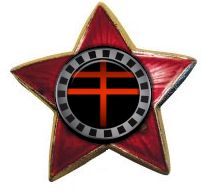The digital Cold War: Information is the new electoral ballot


While my colleague Chris Jablonski considers the acts of space warfare to be likely as soon as in 2025, we are to face even sooner, if not imminently, a revolution of Internet power which brings back the power to the people through a collective of individual actions.
The web in collective form - citizens and ordinary people - are the biggest threat to their own governments and in repressed areas including but not mutually exclusive to China, Burma and Iran, the Internet is putting power back into the hands of those who's electoral vote has been reduced to mere political hyperbole.
With the 2009 Iran elections as the best given case, twenty years after the country's revolution which saw the entire political landscape change, citizens were reporting from inside their own boundaries. Through reporting the uprising and surge of governmental repression through social media and the wider web, replacing the blocked state-run media, the world became engrossed and astounded with the goings on.
Stephen Fry, freedom of Internet advocate and widely respected all-round gentleman, described Twitter in a recent BBC documentary series, as not only a social medium where one can spread inane self-indulged "news" about themselves, but recognised the further power of the socially interconnecting community:
"A social network probably couldn't bring down a regime, but it certainly helps as it spreads ideas".
And as censorship becoming a wider issue, though not restricted to repressive regimes, younger citizens who are feeling starved of truth and unrestricted knowledge are becoming more aware of the censors and what is specifically being held back, even though the content isn't loading. China's "50 Cent Army" spreads communist propaganda internally, promoting the political good of the party in power but acting in a way which results in looking like public-relations self-harm.
In the end, it falls down to simply that - public relations or "PR 2.0" - using the web as a tool to keep people on side. For now, a lull in the impending storm sees a standoff between the government and the citizen; a relic of the Cold War holding back to be used as the first move.
As I see it today, in 2010 at this very moment of minutes and seconds, the next major battle we will see from a Cold War stand-offish way, exploding into a World War fashion will be through the use of the web. In repressive regimes, the next-generation will revolt and the democratic world will help. Governments may not, as they could not necessarily be seen to. But in a time of Internet battles, nationality will be almost entirely negated and the aftermath will redraw the map of the new digital world.
This imminent rise of brewing tension and political reform will be seen in our lifetime as it will be us, the next-generation, the student and the Generation Y who takes on this challenge as our own.